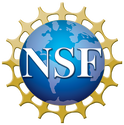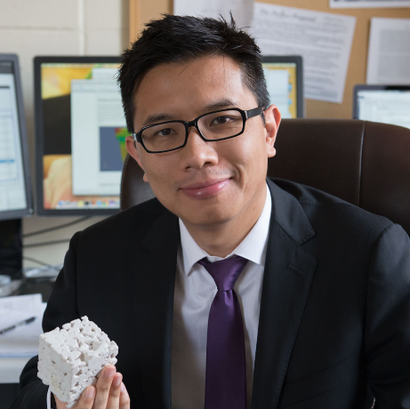|
Objectives: Mechanistic Machine Learning for Engineering and Applied Science will be offered to graduate students and researchers to introduce the practical data analytics, dimension reduction, and machine learning techniques, for a variety of science and engineering applications in materials, structures, and systems. This workshop is designed for the audience with a background in mechanics and/or applied physics. The course will provide an overview of four major categories of machine learning techniques (reduced-order methods, geometric learning, manifold learning, and reinforcement learning) and a data-driven model-free framework. Case studies will be used to demonstrate how these learning techniques have enhanced research and technology advancements. These application problems will include a data-driven model-free paradigm for complex material systems, reduced-order modeling of fracture and thermal fatigue analysis, geometric learning for polycrystal and granular systems, and reinforcement learning-enabled multiscale modeling for solid and fluid mechanics problems. Lecture materials and lab handouts will be provided before the short course. Target Groups: Graduate students, researchers with an understanding of continuum mechanics. Participants must bring their own laptops for the two lab sessions. A course website will be set up for course materials and sample codes repository prior to the short course date. |
Workshop information
Language: English
Course date: July 30-31, 2022 Duration: Two half day Registration: Online registration available. Contact instructors for on-Site registration. 
The course materials are supported by NSF grants 2110537 to UC San Diego and 1846875 to Columbia University.
These supports are gratefully acknowledged. |
Description
There have been rapidly growing demands on applying various machine learning techniques to shorten development cycles, discover hidden mechanisms and automate manual derivations. However, the exponential growth of literature and hypes of new techniques often makes it difficult for researchers to create solutions that truly bring added values to the existing state-of-the-art (in terms of accuracy, robustness, and efficiency).
This workshop is designed to provide hands-on experience for a selection of machine learning approaches that are deemed relevant for material modeling by the instructors. The course covers the three major categories of machine learning and data-driven paradigms, i.e., supervised machine learning and data-driven computing that either generate response surfaces or search optimal solutions on manifolds of material states, the unsupervised learning and the connection with reduced dimensionality techniques such as POD, and reinforcement learning which employs decision tree to search discrete logics or sequences of decision that optimizes a specific goal.
Participants will learn how to train neural network for simple tasks, how to choose representation and parametrization on the constraint optimization problem for high-dimensional space, how to generate new descriptors from geometric learning of graphs and manifold and how to set up rewards with finite actions (e.g. the shape of yield surface, hardening rules, damage, non-locality, refinement criterion) against constraints (e.g. material-frame indifference, thermodynamic laws) to create AI that adaptively generates different interpretable models understandable by human users. The participants will be given the open-source codes that replicate the results and a course website with pre- and post-events forum will be available to registered participants. Fees for underrepresented groups may be waived through external sponsors.
Target Groups: Graduate students, researchers with an understanding of continuum mechanics and some programing experience on Python. Participants must bring their own laptops. A pre-course website will setup to deliver course materials and sample codes before the conference. Basic understanding of graph theory is helpful but not required.
Scientific/Technical areas covered:
This workshop is designed to provide hands-on experience for a selection of machine learning approaches that are deemed relevant for material modeling by the instructors. The course covers the three major categories of machine learning and data-driven paradigms, i.e., supervised machine learning and data-driven computing that either generate response surfaces or search optimal solutions on manifolds of material states, the unsupervised learning and the connection with reduced dimensionality techniques such as POD, and reinforcement learning which employs decision tree to search discrete logics or sequences of decision that optimizes a specific goal.
Participants will learn how to train neural network for simple tasks, how to choose representation and parametrization on the constraint optimization problem for high-dimensional space, how to generate new descriptors from geometric learning of graphs and manifold and how to set up rewards with finite actions (e.g. the shape of yield surface, hardening rules, damage, non-locality, refinement criterion) against constraints (e.g. material-frame indifference, thermodynamic laws) to create AI that adaptively generates different interpretable models understandable by human users. The participants will be given the open-source codes that replicate the results and a course website with pre- and post-events forum will be available to registered participants. Fees for underrepresented groups may be waived through external sponsors.
Target Groups: Graduate students, researchers with an understanding of continuum mechanics and some programing experience on Python. Participants must bring their own laptops. A pre-course website will setup to deliver course materials and sample codes before the conference. Basic understanding of graph theory is helpful but not required.
Scientific/Technical areas covered:
- Overview: Machine Learning and data-driven computing
- Representation of data: reduced-order modeling and unsupervised learning in Euclidean spaces, manifolds and graphs
- Data-driven approach: Local convexity data-driven computing (LCDDC)
- Interpretation of data: graph theory and knowledge graph
- Reinforcement learning from data: games to deduce graph-based constitutive laws
- Programming ML: overview of TensorFlow 2.0
- Tutorials: Programming deep reinforcement learning/LCDDC for material modelings and experimental designs
RSVP. |
|
Enroll in the course today!
|


